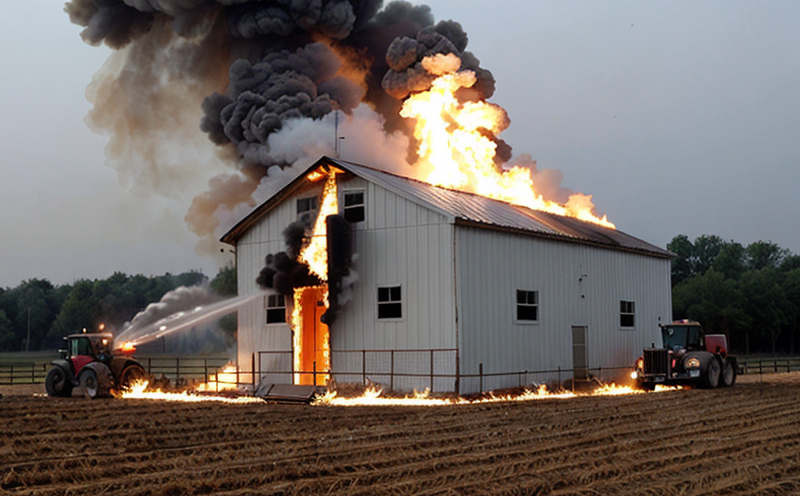Fire Safety for Agricultural Operations: A Comprehensive Guide
Agricultural operations are often characterized by their use of open flames, heat-producing equipment, and combustible materials, making them inherently high-risk for fires. In fact, agricultural fires can be devastating, causing significant economic losses, environmental damage, and even loss of life. According to the National Fire Protection Association (NFPA), in 2019 alone, there were over 52,000 reported fires in agricultural operations across the United States, resulting in 1 billion in damages.
To mitigate these risks, it is essential for farmers and ranchers to prioritize fire safety in their daily operations. In this article, we will discuss the importance of fire safety in agriculture, common causes of agricultural fires, and practical steps that can be taken to prevent and respond to fires on the farm or ranch.
Understanding Agricultural Fires
Agricultural fires are often sparked by human error, equipment malfunction, or natural disasters such as lightning strikes. Some of the most common causes of agricultural fires include:
Equipment malfunctions: Tractors, combines, and other heavy machinery can overheat or catch fire due to mechanical failure.
Open flames: Agricultural operations frequently use open flames for tasks such as welding, burning weeds, or cooking meals on-site.
Drying equipment: Dryers, kilns, and other heat-producing equipment can ignite combustible materials if not properly maintained.
Prevention Measures
To prevent fires from occurring in the first place, farmers and ranchers should:
Conduct regular inspections: Regularly inspect equipment, machinery, and buildings to identify potential fire hazards.
Store flammable materials safely: Keep fuel, fertilizers, and other combustible materials in well-ventilated areas, away from heat sources and open flames.
Develop an emergency response plan: Create a plan outlining procedures for responding to fires on the farm or ranch.
Fire Prevention Strategies
In addition to regular inspections and proper storage of flammable materials, farmers and ranchers can implement various fire prevention strategies:
Use fire-resistant materials: Choose materials that are resistant to heat and flames when building or renovating structures.
Install fire suppression systems: Install sprinkler systems or other fire suppression equipment in critical areas such as grain silos and fuel storage facilities.
Maintain equipment regularly: Regularly clean, inspect, and maintain machinery and equipment to prevent overheating and malfunctions.
Fire Response Planning
While prevention is key, its equally important to have a plan in place for responding to fires on the farm or ranch. This should include:
Designating fire response teams: Assign trained personnel to respond to fires, including farmers, ranchers, and other employees.
Identifying evacuation routes: Clearly mark escape routes and emergency exits to ensure safe egress in case of a fire.
Conducting regular drills: Regularly practice fire response procedures with all team members to ensure a smooth response.
Frequently Asked Questions (FAQs)
Here are some additional questions and answers related to fire safety in agricultural operations:
Q: What is the most common cause of agricultural fires?
A: The most common causes of agricultural fires include equipment malfunctions, open flames, and natural disasters such as lightning strikes.
Q: How often should I inspect my equipment for potential fire hazards?
A: Regularly inspect your equipment, machinery, and buildings at least once a month to identify potential fire hazards.
Q: What are some examples of fire-resistant materials I can use in building or renovating structures?
A: Examples of fire-resistant materials include steel, aluminum, concrete, and certain types of insulation.
Q: Do I need to install fire suppression systems on my farm or ranch?
A: Yes, installing sprinkler systems or other fire suppression equipment is essential for critical areas such as grain silos and fuel storage facilities.
Q: How can I ensure that my employees are prepared to respond to fires in case of an emergency?
A: Conduct regular training sessions with all team members on fire response procedures and provide them with a clear understanding of their roles and responsibilities.
Q: What should I do if I suspect a fire is starting or spreading rapidly?
A: If you suspect a fire, immediately sound the alarm, alert other team members, and evacuate the area.

































